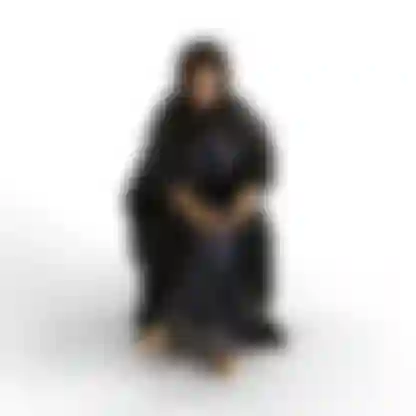No Christmas in Russia
There was not much of a Christmas celebration in the Soviet Union. The New Year was elevated to a significant occasion. Christmas was outlawed as a religious celebration in 1929 after the revolution of 1917, and Christmas trees were outlawed until 1935 when they were repurposed as "New Year" trees! In order to celebrate Christmas, individuals had to keep it a secret and limit it to their own kin.
It became legal for individuals to celebrate Christmas once more following the fall of the Soviet Union in 1991. After the massive New Year's celebrations, however, it's still a smaller and quieter holiday in Russia.

The New Year is a time to celebrate with copious amounts of food and drink. Christmas is a far more personal and pious occasion.
On New Year's Day, children get gifts from "Grandfather Frost," also referred to as "Ded Moroz" or "Дед Мoроз" in Russian. He is never alone; his granddaughter, Snegurochka, is with him. Children hold hands, form a circle around the Christmas tree, and call for Ded Moroz or Snegurochka on New Year's Eve. The star on the Christmas tree and the other lights turn on when they do! Ded Moroz has a large magic staff with him. 'S Novym Godom' is the customary way to wish someone a happy new year.
'The Irony of Fate' (Ирония сyдьбы or Ironiya sudby) is a well-known and 'traditional' film to watch on TV on New Year's Eve. It was recorded in 1975, during the Soviet era, and was broadcast on Soviet TV every New Year's Eve. It is also known as "Enjoy your Bath" or "With a Light Steam." In this romantic comedy, a man goes to the sauna with some of his pals and drinks too much, becoming completely lost in the process. Additionally, on New Year's Eve, Russian TV airs The Irony of Fate. In Belarus, it's also aired on New Year's Eve.
In Russia, Christmas is typically observed on January 7th (but some Catholics may observe it on December 25). The Russian Orthodox Church celebrates holy holidays according to the antiquated "Julian" calendar, which explains why the date is different. The Orthodox Church observes Advent as well. However, it is scheduled to begin on November 28 and end on January 6; hence, it lasts for 40 days.
Russia observes official Christmas and New Year's holidays from December 31 to January 10.
's rah-zh-dee-st-VOHM' (C рождеством!) or's-schah-st-lee-vah-vah rah-zh dee-st-vah' (Счaстливого рождества!) are the Russian words for "Happy/Merry Christmas." In many more languages, Happy/Merry Christmas.
On Christmas Eve, some individuals fast—that is, refrain from eating particular foods—until the first star appears in the sky. After that, they eat "sochivo" or "kutia," a wheat or rice porridge flavored with honey, poppy seeds, chopped walnuts, fruit (particularly berries and dried fruit like raisins), and occasionally even fruit jellies!
Kutia is occasionally consumed from a single communal bowl; this represents harmony. Some families used to enjoy tossing a spoonful of sochivo over the ceiling. Some believed that if it attached to the ceiling, it would bring them luck and a bountiful harvest!
The word "sochivo" is the root of the Russian word "sochelnik," which refers to Christmas Eve.
Furthermore, on Christmas Eve meals and feasts, some Russians who follow Orthodox Christianity refrain from eating meat and fish.
Aside from beetroot soup (borsch) or vegan potluck (solyanka), popular Christmas Eve dishes include sauerkraut, porridge dishes like buckwheat with fried onions and fried mushrooms, salads made mostly of vegetables like gherkins, tomatoes, or mushrooms, and potato or other root vegetable salads. Individual vegetable pies are typically made with cabbage, potato, or mushroom. Typically, there are 12 courses during the dinner, which stand in for Jesus' 12 disciples.
"Vzvar," which translates to "boil-up," is frequently offered as a last course. This sweet beverage is created by boiling honey and dried fruit in water. Since Vzvar is typically performed during a child's birth, it represents the birth of Jesus at Christmas.
Vzvar, which translates to "boil-up," is frequently offered as a last course. This sweet beverage is created by boiling honey and dried fruit in water. Since vzvar is typically associated with a child's birth, it represents the birth of Jesus at Christmas.
After dinner, folks may say prayers before attending church services at midnight. They frequently wait till after church to wash the dishes, sometimes not until 4:00 or 5:00 in the morning!
Christmas Day dinner is typically more of a feast, consisting of foods like pirog, roast pork and goose, and pelletmeni (meat dumplings). Desserts typically include of fruit pies, Pryaniki (gingerbread and honeybread cookies), fresh and dried fruit, and additional nuts.
Russian Christmas cookies known as "Kozulya" come in the shapes of deer, goats, or sheep.
In some places, kids would sing Christmas carols to neighbors and family members to wish them a good new year. Typically, they receive cash, cookies, and candies as rewards.
The Babushka story is one of the most well-known aspects of Christmas in Russia for individuals in western Europe and the United States. In Russian, babushka means "grand mother." It describes how an elderly woman encountered the Wise men as they were en route to see Jesus.
But since the story was most likely written in 1907 by an American poet and writer named Edith Matilda Thomas, most Russians have never heard of it! Numerous letters have come in from Russian site visitors who are unfamiliar with the story!

The Story of Babushka
"Once in a small Russian town, there lived a women called Babushka. Babushka always had work to do sweeping, polishing, dusting and cleaning. Her house was the best kept, most tidy house in the whole village. Her garden was beautiful and her cooking was wonderful. One evening she was busy dusting and cleaning, so busy that she didn't hear all the villagers outside in the village square talking about and looking at the new star in sky.
She had heard about the new star but thought, "All this fuss about a star! I don't even have the time to look because I'm so behind with my work. I must work all night!" So, she missed the star as it shone brightly, high overhead. She also missed the little line of twinkling lights coming down towards the village at dawn. She didn't hear the sounds of the pipes and drums. She missed the voices and whispers of the villagers wondering whether the lights were an army or a procession of some sort. She missed the sudden quiet of the villagers and even the footsteps coming up the path to her door. But the one thing that she couldn't miss was the loud knocking on her front door!
"Now what is that?" she wondered, opening the door. Babushka gaped in amazement. There were three kings at her door with one of their servants! "My masters need a place to rest," the servant said, "and yours is the best house in the village." "You want to stay here?" asked Babushka. "Yes, it would only be until night falls and the star appears again." the servant replied. Babushka gulped. "Come in, then." she said.
The kings were very pleased when they saw all of the of the home-baked bread, pies and cakes. She dashed about, serving them, asking lots of questions. "Have you come a long way?" "A very long way." sighed Caspar. "Where are you going?" "We're following the new star." said Melchior. "But where?" The kings didn't know, but they believed that it would lead the to a new-born king, a King of Earth and Heaven. "Why don't you come with us?" asked Balthasar. "You could bring him a gift like we do. I bring gold, and my colleagues bring spices and perfumes." "Oh, I'm not sure that he would welcome me," said Babushka, "and what could I bring for a gift? Toys! I know I could bring a toy. I've got a cupboard full of toys." she said sadly. "My baby son, died when he was small." Balthasar stopped her as she went to tidy the kitchen up. "This new king could be your king too. Come with us when the star appears tonight." he said. "I'll think about it." sighed Babushka.
As the kings slept, Babushka tidied up as quietly as she could. "What a lot of extra work there was!" she thought, "and this new king, what a funny idea, to go off with the kings to find him."
As the kings slept, Babushka tidied up as quietly as she could. "What a lot of extra work there was!" she thought, "and this new king, what a funny idea, to go off with the kings to find him."
Babushka shook herself. There was no time for dreaming, all this washing-up and putting away had to be done. "Anyway," she thought, "how long would she be away? What would she wear? What about the gift?" She sighed. "There is so much to do. The house will have to be cleaned when they've gone. I couldn't just leave it." Suddenly it was night-time again and the star was in the sky. "Are you ready, Babushka?" asked Balthasar. "I'll come tomorrow," Babushka called, "I must just tidy here first and find a gift."
The kings went away sadly. Babushka ran back into her house, keen to get on with her work.

Finally, she went to the small cupboard, opened the door and gazed at all the toys. But they were very dusty. They weren't fit for a baby king. They would all need to be cleaned. She cleaned all of the toys until each one shined. Babushka looked through the window. It was morning! The star had came and gone. The kings would have found somewhere else to rest by now. She could easily catch them up, but she felt so tired. She had to sleep. The next thing she knew, she was awake and it was dark outside. She had slept all day! She quickly pulled on her cloak, packed the toys in a basket and ran down the path the kings had taken.
Everywhere she asked "Have you seen the kings?" "Oh yes," everyone told her, "we saw them. They went that way." For a day Babushka followed the trail of the kings and the villages got bigger and became towns. But Babushka never stopped. Then she came to a city. "The palace," she thought. "That's where the royal baby would be born." "No, there is no royal baby here," said the palace guard when she asked him. "What about three kings?" asked Babushka. "Oh yes, they came here, but they didn't stay long. They were soon on their journey." "But where to?" asked Babushka. "Bethlehem, that was the place. I can't imagine why. It's a very poor place. But that's where they went." replied the guard. She set off towards Bethlehem. It was evening when Babushka arrived at Bethlehem and she had been traveling for a long time. She went into the local inn and asked about the kings. "Oh yes," said the landlord, "the kings were here two days ago. They were very excited, but they didn't even stay the night." "And what about a baby?" Babushka cried. "Yes there was." Said the landlord. "The kings asked about a baby, too." When he saw the disappointment in Babushka's eyes, he stopped. "If you'd like to see where the baby was," he said quickly, "it was across the yard there. I couldn't offer the couple anything better at the time. My inn was really full, so they had to go in the stable."
Babushka followed him across the yard. "Here's the stable." he said. He left her in the stable. "Babushka?" Someone was calling her from the doorway. He looked kindly at her. She wondered if he knew where the family had gone. She knew now that the baby king was the most important thing in the world to her. "They have gone to Egypt, and safety," he told Babushka. "And the kings have returned to their countries. But one of them told me about you. I am sorry but you are too late. It was Jesus that they found, the world's Savior."
Babushka was very sad that she had missed Jesus and it is said that Babushka is still looking for him.
That's for today and thanks for visiting again. Merry Christmas y'all 💝



It's no surprise there really.